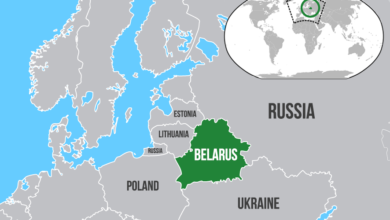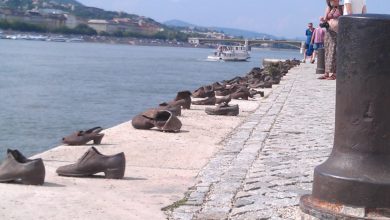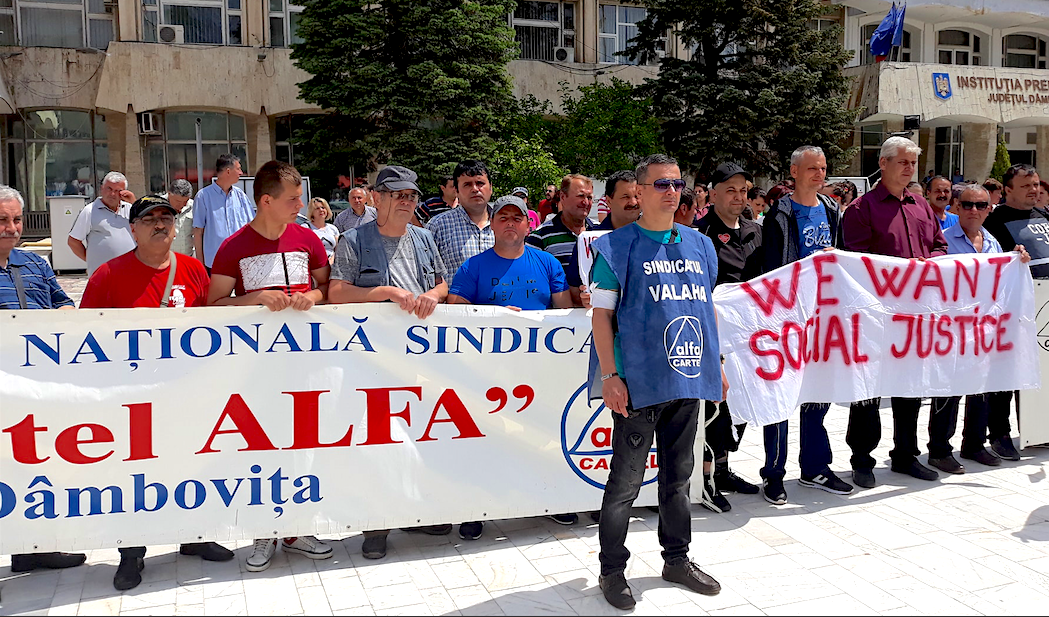Veterans of almost any mass people’s movement have seen firsthand the senseless brutality of riot police, a vicious and well-equipped line of defense for private property. It then goes without saying that progressives and revolutionaries the world over were overjoyed when photos emerged recently from Spain showing these same cops momentarily overwhelmed and surrounded by tens of thousands of outraged workers. In response to brazen attacks on their basic rights, our Spanish, Greek and Portuguese sisters and brothers have taken to the streets as part of a sustained, militant struggle.
Spain
The massive Spanish demonstrations—called “Occupy Congress”—were organized by the Indignados movement, which emerged out of the occupations of public squares across the country in May 2011 and helped inspire the Occupy Wall Street movement in the United States a few months later. Since Sept. 25, hundreds of thousands have surrounded the Spanish legislature on a near daily basis, demanding the resignation of the right-wing government of Mariano Rajoy. The two major union federations are now considering calling a general strike in November.
The demonstrations were sparked by the introduction of $52 billion worth of austerity measures by Rajoy’s supporters. These include a freeze on public-sector wages and a reduction in unemployment benefits—an especially devastating move in a country with over 25 percent unemployment.
The measures are being adopted by order of the European Union, European Central Bank and International Monetary Fund, collectively referred to as the Troika. The Troika is attempting to ensure that the burden of the economic crisis will be shouldered by poor and working people rather than the capitalist class. The government has already requested a bailout from these infamous lenders for Spain’s private banking system, and there are some indications that that it will seek a full sovereign bailout as well to prevent the state from going bankrupt.
Parallel to the demonstrations in Madrid, a historic protest of up to 1.5 million took place in Catalonia, an autonomous region in eastern Spain with the official status of a separate nationality, and has sent shockwaves through the political establishment. Under the slogan “Catalonia, A New European State,” the unprecedented turnout has prompted the center-right nationalist administration of Artur Mas to push for a referendum on independence and raised the specter of the breakup of the country. For many Catalan workers, independence is seen as a way to escape the mountain of austerity measures being passed by the central government.
Adding to almost unbearable stress, the Spanish state reacted with extreme brutality to the protests, especially on the first night of demonstrations. Sixty-four protesters were injured as riot police attacked the crowds. Historically, similar acts of violence by police have only inflamed the militancy of poor and working people.
Greece
Following a familiar routine, Troika officials arrived in Greece last week to “negotiate” a new package of brazen attacks on the rights of working people. As these officials stepped out of their limousines to enter the finance ministry building, protesters chanted “Bastards, the gallows are coming!” This time, the creditors are relaying orders to the new conservative-led coalition government of Prime Minister Antonis Samaras in order to finalize a $14.8 billion austerity package.
As it has previously, the government promises that this will be the final set of sacrifices imposed on the working class. While they have not yet been finalized, measures being considered include cuts to pensions and public-sector wages, raising the retirement age from 65 to 67, laying off up to 150,000 public workers and abolishing the eight-hour work day.
During the election campaign this June, the parties supporting Samaras’ administration promised to renegotiate the memorandum and implied that they would not impose any new austerity, but have since rapidly backtracked. Their objective is now simply to persuade the Troika to grant a two-year extension to the memorandum and give the country until 2016 rather than 2014 to implement the measures and meet a set of absurdly unrealistic economic benchmarks.
Fearing social upheaval that would lead to the collapse of Samaras’ coalition, many leaders of the European Union, including French President Francois Hollande, are open to the idea of a two-year extension. On the other hand, the Washington, D.C.,-based International Monetary Fund has reportedly taken a hard line and is insisting that no changes to the memorandum be made. Further complicating the situation, 2013 is an election year in Germany—the Eurozone’s most important creditor—and its electorate has been fed a steady dose of anti-Greek propaganda since the crisis broke out.
While capitalist politicians are busy cutting such back-room deals, the Greek working class is in the streets. On Sept. 26, hundreds of thousands of workers marched as part of a general strike that shut down workplaces across the country. Protesters were faced with brutal repression as police launched barrages of tear gas into the crowds. Called in part due to pressure exerted by the Communist Party-affiliated All Workers Militant Front (PAME) on the more conservative trade union leadership, this was the first of undoubtedly many general strikes to be faced by Samaras’ new government.
Different forces on the left have adopted unique orientations towards the unfolding struggle. The Coalition of the Radical Left (SYRIZA), following a trend that began with its meteoric rise in the May election, has moderated its positions and deepened its social-democratic orientation—advocating a “kinder, gentler” capitalism. SYRIZA leader Alexis Tsipras has conceded that the government has the “right” to impose austerity in accordance with the “people’s will” as expressed in bourgeois elections.
He has further fostered illusions by calling on foreign capitalist governments to implement a new “Marshall Plan” for Greece, while remaining silent on the need for the socialist reorganization of society. Tsipras described SYRIZA as “the last fortress defending social cohesion and democracy in Greece.” Of course, the social cohesion he is speaking about is the false unity between oppressors and oppressed, and it is clear that democracy in Greece is only for the capitalist class—how else could austerity measures opposed by 90 percent of the population be imposed?
The Communist Party of Greece (KKE), on the other hand, focuses on highlighting the fact that economic crises and constant attacks on the gains won by poor and working people are inherent features of capitalism. The KKE calls for the revolutionary overthrow of capitalism, to be replaced with “workers’ and people’s power” and the socialization of the means of production.
While the demands and slogans of the workers’ movement are overwhelmingly progressive or revolutionary, openly fascist forces are also gaining strength. The neo-Nazi Golden Dawn party is now the third most popular political force according to recent opinion polls, with a base of support among newly impoverished elements of society and members of the security forces.
Golden Dawn’s extreme racist program centers on expelling all immigrants from Greece. Its members and supporters routinely harass, assault and even murder foreign-born workers. A minor scandal occurred when a Golden Dawn member of Parliament was videotaped participating in the destruction of an immigrant street vendor’s merchandise.
The Greek government is also carrying out a vicious assault on immigrant communities, relying on the same racist logic as Golden Dawn. In a campaign called Operation Xenios Zeus, thousands of immigrants have been detained in mass raids similar to those carried out by ICE in the United States. Reports have recently surfaced that, not content to simply imitate Golden Dawn’s tactics, Greek police are now directly referring victims of crime to the Nazis.
Portugal
One of the most important developments has occurred in Portugal, among the poorest countries in the eurozone. It, like Greece, has been forced to accept devastating austerity in return for a bailout from the Troika. In one of its most transparent anti-worker attacks, the right-wing government of Prime Minister Passos Coelho introduced a measure to increase the amount of money that workers pay into the social security fund while decreasing the amount paid by bosses.
In outraged response, approximately 1 million Portuguese workers gathered in Lisbon Sept. 15 in the largest demonstration since the 1974 revolution that overthrew the fascist dictatorship that had ruled the country for decades. His legitimacy threatened, Prime Minister Coelho convened the Council of State, a body of the Portuguese government that acts only in emergency situations.
The Council of State meeting, held Sept. 21, was again met with enormous protests. Now, the demonstrators raised demands for the resignation of the government. Under massive popular pressure from a militant people’s movement, the government backed down and dropped its effort to impose the new law.
This is a hugely important victory against the Troika and their domestic partners. However, the government is continuing its campaign to further impoverish the Portuguese working class. On October 3, Finance Minister Vitor Gaspar announced a series of tax increases that target the most vulnerable layers of society.
Building on the momentum of the massive demonstrations of the past weeks, the General Confederation of Portuguese Workers (CGTP)—the largest trade union federation in the country—announced a general strike for November 14. The CGTP, which is led largely by members of the Portuguese Communist Party, issued a statement saying: “This [the tax hikes] is an authentic program of aggression against the workers and the people. … The consequences for the workers and their families are brutal—general impoverishment, drastic worsening of living conditions and life expectancy.”
Workers in the United States can learn two important lessons from the suffering and resistance of our European sisters and brothers. First, working-class organization and militant struggle is the only approach that can force the capitalists to retreat—this is especially evident in Portugal. Second, no gain won under capitalism is safe. Unless poor and working people hold political and economic power, any of the rights conceded to us can be taken away, especially during the periodic crises inherent in the capitalist system.
The bankers and CEOs in the United States are carrying out similar attacks as their Spanish, Greek and Portuguese counterparts. If we organize and resist, we can stop them in their tracks. They say cut back, we say fight back!





